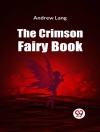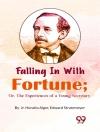Thanksgiving Tales is an evocative anthology that captures the spirit of gratitude and reflection associated with the festive season. This collection traverses a vast spectrum of literary styles, from the heartwarming to the thought-provoking, creating a tapestry of narratives that are as diverse as they are enriching. Stories brim with the detailed charm of pastoral narratives and the sophisticated tones of American Realism, spotlighting the cultural rituals that define Thanksgiving. Whether through insightful short stories or evocative essays, each piece serves as a quintessential snapshot of Thanksgiving, anchoring the anthology in the historical and cultural context of the late 19th and early 20th centuries. The anthology showcases a curation of works by some of the most notable authors of their time, each bringing a unique voice and perspective to the collection. Known for their contributions to American and international literary movements, authors like Harriet Beecher Stowe and Nathaniel Hawthorne offer narratives that weave seamlessly through themes of community, kinship, and gratitude. Other writers, such as Charlotte Perkins Gilman and Louisa May Alcott, contribute pieces that reflect on societal norms, offering a critique intertwined with holiday traditions. This range of background and experience among the authors enriches the thematic exploration, inviting readers into a multifaceted understanding of Thanksgiving. Thanksgiving Tales invites readers into a literary feast, offering a multifarious array of narratives to savor. Ideal for anyone interested in exploring the nuanced interplay of tradition and literature, the anthology provides a unique educational opportunity through its diverse collection of voices. As readers navigate these tales, they are engaged in a broader dialogue that transcends individual narratives, creating moments of shared understanding and appreciation. This compendium promises to captivate and enlighten, making it an essential addition to both personal and academic collections alike.
लेखक के बारे में
Harriet Beecher Stowe (1811–1896) was an influential American author and abolitionist, celebrated for her novel ‘Uncle Tom’s Cabin’ (1852), a work which galvanized anti-slavery sentiment in the United States and abroad. Born in Litchfield, Connecticut, to Lyman Beecher, a prominent Congregationalist minister, and Roxana Foote, Stowe was the seventh of thirteen children. The Beecher family was at the forefront of various reform movements, including abolitionism, which clearly influenced Stowe’s writing and beliefs. Stowe’s education at the progressive Hartford Female Seminary, founded by her sister Catharine, equipped her with a strong intellectual grounding uncommon for women of her time. She married Calvin Ellis Stowe, a theologian and widower, in 1836, and together they had seven children, their domestic and financial challenges often coloring her work. Stowe wrote over 30 books, including novels, three travel memoirs, and collections of articles and letters. Despite the prolific bibliography, it is ‘Uncle Tom’s Cabin’ that remains her most recognized and impactful work, credited with laying the groundwork for the Civil War. It is important to note that her works often depicted the complexities of race, gender, and class in the 19th century. Though ‘Thanksgiving Tales’ may not carry the same historical weight as her antislavery writings, it nonetheless offers an insight into Stowe’s literary talents and her ability to capture the cultural essence of her time. Her literary style combined emotional narrative with social criticism, aiming to effect moral and social change through literature.












